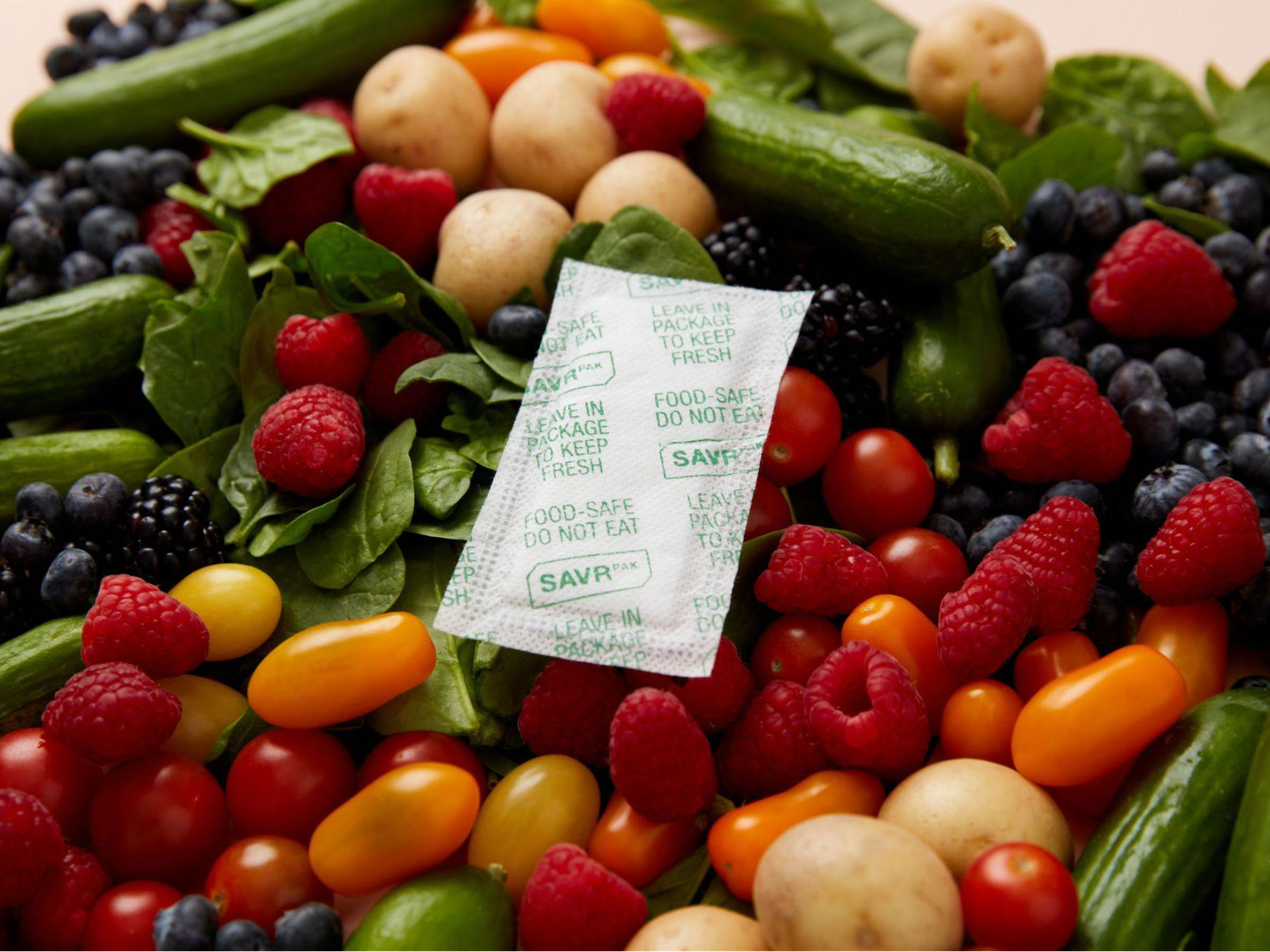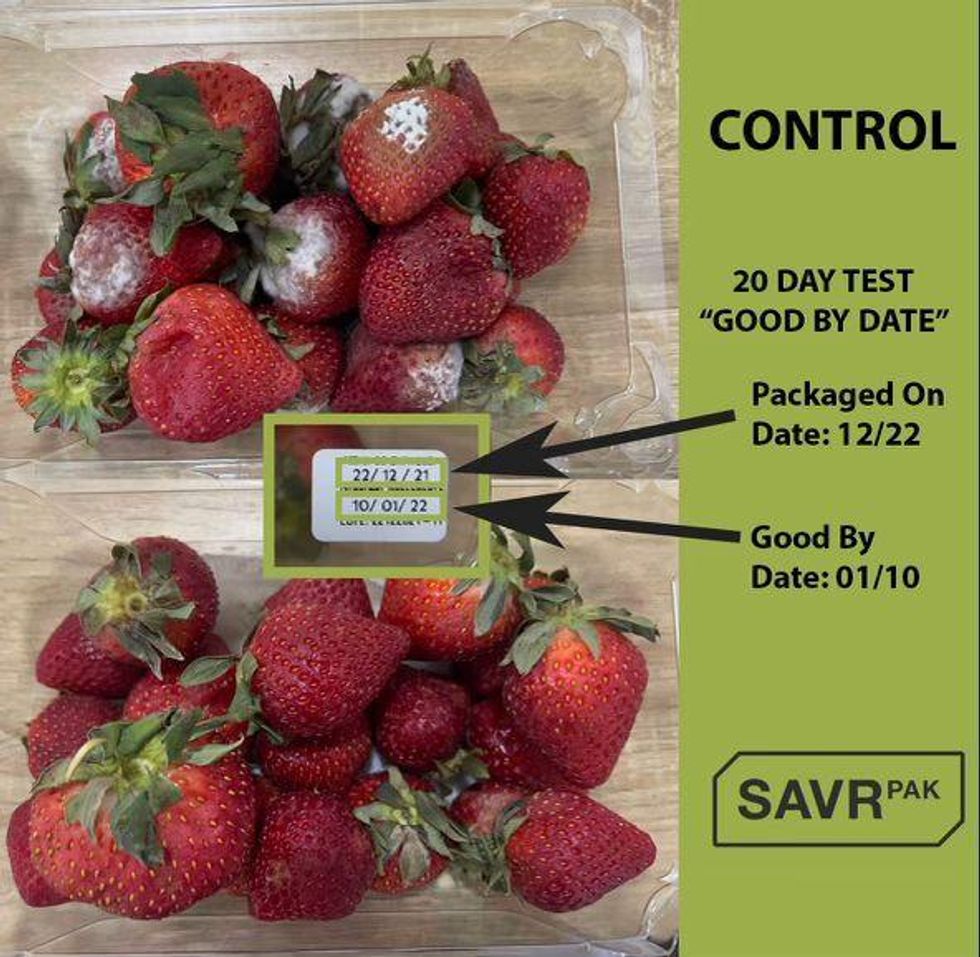SAVRpak Is Set to Keep Fries and Berries Fresh with Moisture-Absorbing Pads
David Shultz reports on clean technology and electric vehicles, among other industries, for dot.LA. His writing has appeared in The Atlantic, Outside, Nautilus and many other publications.

If there’s one thing that COVID laid bare in modern society, it’s the American propensity for takeout. And if there’s one thing that’s become apparent from our heightened demand for on-demand food, it’s that most food doesn’t travel well.
Soggy French fries and buns can quickly transform a delicious dine-in favorite to a mushy disappointment. Moisture is the bane of food preservation beyond takeout as well: Breaks in the cold chain allows condensation to form on produce, spurring the growth of mold and shortening shelf life for everything from berries to lettuce and tomatoes and costs the food industry trillions every year in food waste.
SAVRpak, a San Juan Capistrano-based food tech company, is aiming to tackle the moisture problem with a high-tech twist on a long-established technology. The company makes a stick-on pad about the size of a napkin that contains a host of moisture-absorbing compounds that suck the excess h20 out of packaging, preventing condensation and keeping food fresh and crisp.
“It's similar to a lot of materials that you'd see in diapers, feminine products, things like that,” says Gregory Maselli , the co-CEO at SAVRpak.
Having the equivalent of diapers or maxipads next to your food may not be the most appetizing image, but the pads can add significant shelf life to produce. For strawberries, microgreens, arugula and peppers and mini cucumbers, the tech can extend a fruit’s life by four to 10 days. A UC Davis study concluded that the paks reduced the excess moisture in romaine lettuce by 24% and extended their shelf life by 18%. That kind of extra shelf life makes it easier for consumers to finish eating a container of berries or grapes. Even more importantly, it allows farmers and distributors more flexibility for shipping the produce and can even allow some crops to be shipped by boat or truck instead of on planes–drastically reducing associated carbon costs along the way.
The exact formulation of the SAVRpak gets tweaked a bit depending on the application, (and in the case of takeout they’re actually frozen before being stuck to the container to help absorb more heat energy), but the paks are made of plant fiber, water, paper and a super absorbent polymer or SAP. The polymer is the absorbent part of the tech, and the part that’s most similar to what you might find in a diaper or menstrual pad. Unlike those products, however, the entire SAVRpak pad is food safe and edible…not that it would particularly be tasty.

The company said it's currently conducting the final stages of a trial with a major berry distributor, and that they expect to announce the upcoming deal some time this fall. They’re also investigating a new SAP that would make the entire product compostable. When they eventually go to market en masse, SAVRpak expects the pads will sell for just a few cents each when purchased in bulk. And they’re easy to use–just drop one into a carton along with the produce.
The pads are simple to use, but it took a literal rocket scientist to dream them up. Inventor and co-founder Bill Birgen first conceived the idea for the pads when he was disappointed with how his own lunch was holding up at work. Birgen specialized in controlling the humidity in jets and rockets and realized that if he could figure out a way to keep those systems optimal, keeping lunch fresh would be a walk in the park. He tested his earliest prototypes on his own salads.
Now the SAVRpak has drawn $3.5 million in Series A funding from billionaire investor Mark Cuban and has been named one of Time's 100 Best Innovations of 2021. The company has five ongoing publicly-announced partnerships at the moment: They’re working with Divine Flavor for table grapes; RCG Fruits for blackberries; Agrovision for blackberries, blueberries and raspberries; Agrizar for mini-cucumbers and Ocati for golden berries.
If Birgen’s invention catches on it could spell big business for the SoCal food tech company, but–even more importantly–it could put a real dent in global food waste: About a third of the world’s food ends up going to waste, according to World Food Programme. That’s equivalent to 1.3 billion tons and $1 trillion US dollars. Plus, who likes soggy French fries?
David Shultz reports on clean technology and electric vehicles, among other industries, for dot.LA. His writing has appeared in The Atlantic, Outside, Nautilus and many other publications.





 Image Source: Skyryse
Image Source: Skyryse